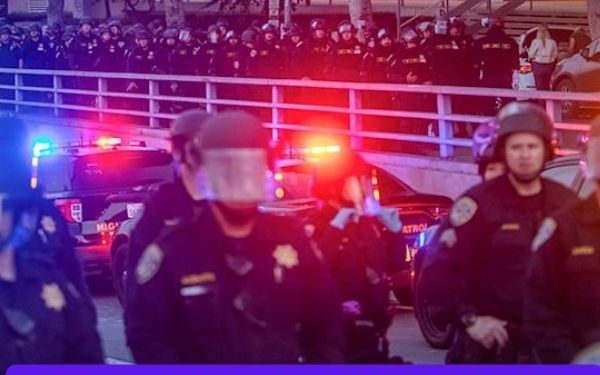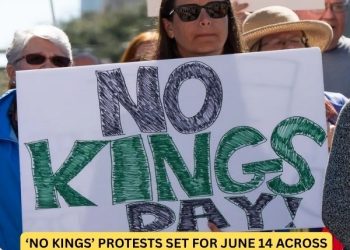LOS ANGELES, Calif. — As immigration raids spark widespread unrest in California, law enforcement is sounding the alarm over a growing staffing crisis, warning that nearly 1,000 officer positions remain unfilled within the California Highway Patrol (CHP). The shortage comes at a time when state and federal authorities are pouring thousands of personnel into protest zones across Los Angeles and the Bay Area.
The CHP has deployed over 640 officers, bolstered by 400 members of its Special Response Team, to handle what officials describe as an ongoing wave of violent protests. Demonstrations erupted in response to U.S. Immigration and Customs Enforcement (ICE) raids targeting immigrant communities in sanctuary cities. Protesters have clashed with police, set fire to self-driving electric vehicles, and shut down major freeways.
So far, over 500 arrests have been made for offenses ranging from assault and weapons possession to carrying Molotov cocktails. At least nine officers have been injured in the clashes.
Adding to the heightened police presence, President Trump has deployed 4,000 National Guard troops and 700 Marines to the region. While their official role is limited to guarding federal facilities and accompanying ICE agents, their deployment has raised concerns about militarization and overreach.
CHP union leaders say the strain is unsustainable. A wave of retirements has left a gaping hole in staffing, just as the need for enforcement has skyrocketed. Officers are working 20-hour shifts, and the pressure is mounting.
Still, not everyone agrees that adding more law enforcement is the solution. Critics argue that more officers and military forces on the streets could further inflame tensions, especially when the unrest stems from a polarizing federal policy that many Californians view as unjust.
Protests have been messy and complex, with many peaceful demonstrators exercising their First Amendment rights, while a smaller group of “bad actors”, according to police, engage in violence. Officers say they must make rapid, high-stakes decisions amid chaos to determine real threats.
But as police unions push for more resources, civil rights advocates are demanding de-escalation tactics, greater transparency, and investment in community-based alternatives to traditional policing.
The question now: In the face of staffing shortages and civil unrest, will California double down on law enforcement — or rethink what public safety looks like?









